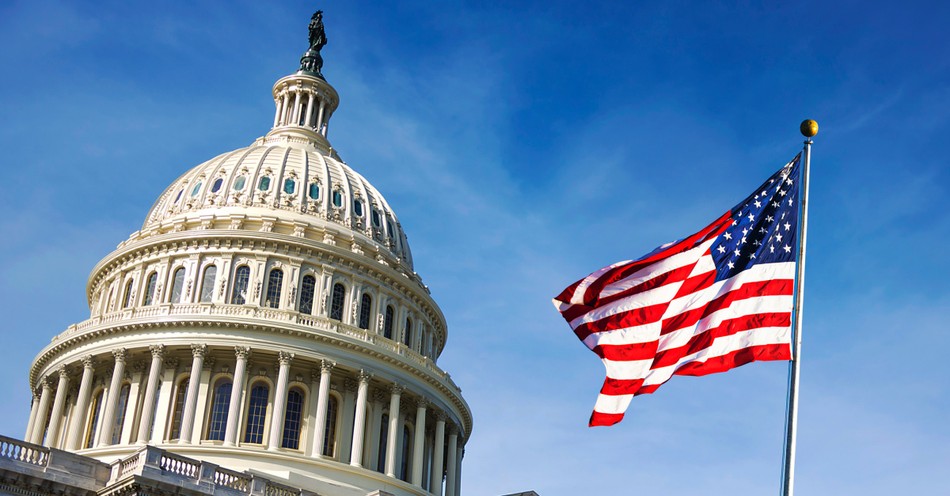The U.S. Constitution is the cornerstone of our American government. Many hold on to the idea that Christianity and God are mentioned in the U.S. Constitution and are a large part of our American government. Based on many of the letters and writings of our country's Founding Fathers, we know that the Christian faith influenced them greatly, but if so, is God explicitly mentioned in the Constitution? And how does the presence or absence of God in the U.S. Constitution affect those of Christian faith living under the government it represents?
Does the U.S. Constitution Mention God Explicitly?
The U.S. Constitution never uses the words "God" or "Creator." Instead, it deliberately stays religiously neutral while the First Amendment guarantees free exercise of religion. Unlike the Declaration of Independence, the Constitution is considered a secular document because it does not mention God. The goal of the Constitution was to separate government and religion while protecting peoples' religious beliefs and activities.
The Constitution was written to be the United States' fundamental law. It defines the organization of the democratic republic, separating itself from Great Britain's colonial reign. The document lays out the powers and duties of the federal government and establishes the basic rights of American citizens. It is considered the shortest but the longest-lasting constitutional document of all the constitutions worldwide.
Laura Tartakoff of the Department of Political Science at Case Western Reserve, states, “The reason it works and has lasted so long is because specifics have been relegated to our ongoing political process and judicial system.”
One thing the members of the Constitutional Convention unanimously agreed on was the right to freedom of religion. This firm belief is why the Constitution does not explicitly mention God or a supreme being. Some scholars suggest that the language and inferred intent do indicate the belief in a God or supreme being. In contrast, others argue that the absence of explicit mention of God in the Constitution reflects the desire to separate church and state.
God in the Declaration of Independence
While the US Constitution does not mention God, God is mentioned at least four times in the Declaration of Independence. God is first referenced within the very opening of the document:
“When in the Course of human events, it becomes necessary for one people to dissolve the political bands which have connected them with another, and to assume among the powers of the earth, the separate and equal station to which the Laws of Nature and of Nature’s God entitle them, a decent respect to the opinions of mankind requires that they should declare the causes which impel them to the separation.”
This establishes that God is evident throughout Creation (Romans 1:21), and because God is the one who made nature and the natural laws, it also establishes God as a clear source of morality.
God is again referenced as Creator in the Declaration's most well-known line:
“We hold these truths to be self-evident, that all men are created equal, that they are endowed by their Creator with certain unalienable Rights, that among these are Life, Liberty and the pursuit of Happiness.”
This statement doesn’t reference the Creator as the Christian God or place superiority of one religion over another, but it does imply that human government should be respectful of the authority of a superior being that not only created the universe but human beings as well.
The third reference to God in the Declaration of Independence is as Supreme Judge of the World.
“We, therefore, the Representatives of the United States of America, in General Congress Assembled, appealing to the Supreme Judge of the world for the rectitude of our intentions, do, in the Name, and by the Authority of the good People of these Colonies, solemnly publish and declare, That these United Colonies are, and of Right ought to be Free and Independent States…”
This title of Supreme Judge of the world establishes God not only as the Creator of the world but also as the source of moral law. This statement is in opposition to the idea of Deism, which says that there exists a supreme being or creator who set the universe in motion but does not intervene in human affairs or the natural world. This statement suggests that those writing the declaration believed that the God of the Bible was the ultimate judge of good and evil.
The final mention of God in the Declaration of Independence labels God as the giver of Divine Providence.
"And for the support of this Declaration, with a firm reliance on the protection of divine Providence, we mutually pledge to each other our Lives, our Fortunes, and our sacred Honor."
This is a statement of trust in the divine’s oversight and actions that would result in declaring independence from Britain. These four mentions of God show that the founding fathers had a clear belief in moral truth which originated from a supreme being. In an article for Intercessors for America, Tyler O’Neil states, “The leaders who formed our country based their arguments for independence on the laws of God, and they trusted Him to guide America through its struggles. They looked to faith as a bulwark of freedom, not as its opposite.”
What Role Did Religion Play in the Founding of the United States?
Many religious backgrounds made up those living in Colonial America at the time of the Declaration of Independence and the writing of the U.S. Constitution. Puritans, Anglicans, Quakers, Lutherans, Roman Catholics, Presbyterians, and Jewish congregations were all represented within the American Colonies.
It is well documented that 51 of the 55 delegates at the Constitutional Convention claimed to hold Christian beliefs. Even Benjamin Franklin, a proclaimed Deist, gave a call to prayer that contained several references to scripture on June 28th, 1787, when the Constitutional Convention was struggling to agree.
“The Constitution doesn’t explicitly mention God but references frequently concepts central to Christianity like morals, reason, and free will,” says David Barton, founder of WallBuilders, a Texas-based group dedicated to promoting America’s Christian heritage.
It is also insightful to note that even our government, structured as it is with its three branches, bears parallels to the three-person Trinity. The Founding Fathers' faith greatly influenced America's founding documents in foundational ways; however, the principle of religious freedom was of high importance to those at the Constitutional Convention, even though the majority present ascribed to the Christian faith.
Why the Framers Chose Secular Language
The Constitution does not directly mention God due to its religious neutrality and the importance it places on religious freedom. The purpose of the Constitution was to establish a government that was ruled by those it governed rather than an elite person or persons, which is made clear in the preamble of the Constitution:
“We the people of the United States, in order to create a more perfect union, establish Justice, ensure domestic tranquility, provide for the common defense, promote the general Welfare, and secure the Blessings and Liberty to ourselves and our posterity, do ordain and establish this Constitution for the United States of America.”
The Constitution sought to reject monarchies and any form of hereditary privilege, giving power to popular sovereignty and establishing fixed rules that limited the power of government. With the broad spectrum of religious diversity in America at the time, the goal of those gathered at the Constitutional Convention was to ensure the document remained neutral on the topic of religion and provided for religious freedom for all.
Anthony J. Minna of The Journal of the American Revolutions states, "The Declaration of Independence and the United States Constitution do not represent competing views of the existence of a Supreme Being or its role in American political life. They are two sides of the same coin. When read together, the Declaration and Constitution tell us that the people’s rights are divine in origin, sacred and unalienable, while governments are human in origin, answerable to the people and dependent entirely on their consent.”
Key Takeaways for Christians
We can confidently say that the U.S. Constitution and the country it has shaped would not be the same without the moral influence of Judeo-Christian values. But where does that leave us today as the culture moves away from the Christian values that have shaped it?
We must acknowledge that we can’t expect a document intended to represent all and hold no favoritism to protect the Christian religion specifically. Nor can we put our ultimate faith in a document defining government. Our faith should remain in the One who is Lord over all creation and rulers: “for there is no authority except that which God has established. The authorities that exist have been established by God” (Romans 13:1).
Jessica Brodie concludes that “the biblical role of government is to act as a guide, leader, and authority over the people. While God is our ultimate king, our earthly kings—in the form of rulers, as well as oppressive systems such as the Babylonian Empire and the Roman Empire—are to be the authority on earth."
But where does that leave those of us who are Christians in America watching our country walk away from the Christian values that inspired it? Let’s remember that the government of the United States was set up to be a representative government, to represent the people within the nation. A 2023 Gallup Poll suggests that 68 percent of the American population identifies as Christian. As a majority, we should elect leaders that hold to similar beliefs and values because those leaders are to represent the citizens.
In Matthew 22:21 Jesus sheds light on how we are to view our role as Christians within a secular society. When asked whether people were supposed to pay the imperial tax to Caesar, then-king of the land, Jesus showed them the coin used as currency. Noting Caesar’s picture was on the coin, Jesus stated, “So give back to Caesar what is Caesar’s, and to God what is God’s." This statement and others throughout Jesus’ ministry suggest that as followers of Christ, we are to pay our taxes and obey the laws of the land in which we live. In the United States, the law allows us to vote and run for office as representatives of the nation, which should embolden us as followers of Christ to make sure our voices are heard when the opportunity to vote is before us.
But even in the submission to governing authorities, we are to obey God above all others. Just as Daniel refused to eat the food presented to him because it was against the Jewish laws, we as Jesus-followers must stay true to God’s authority first and foremost.
We can also pray for our government and the leaders in office because of our confidence in God’s sovereignty. Though we may never truly understand why God allows oppressive leaders, we can have faith that God is working in and calling on his faithful not just in the United States but in every country and government across the world.
Further Reading
Should Christians be Involved in Politics?
What Does the Bible Have to Say about the Government?
3 Powerful Prayers for Our Government
Photo credit: ©Getty Images/Narrarorro

You can find out more about Valerie, her books, and her blog at www.valeriefentress.com.




